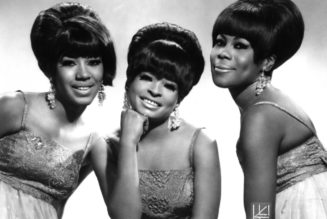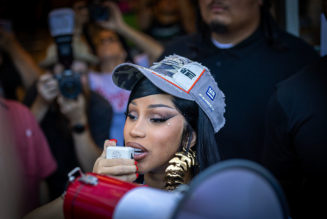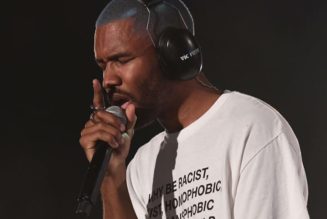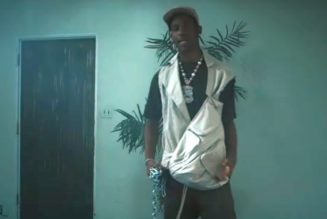
By Tatiana Tenreyro
Rilo Kiley came into my life when I was 16. I couldn’t have found the California indie-rock band at a more pivotal time. At that age, I was dealing with two terrible relationships back-to-back that broke my spirit, while also feeling like an outsider in high school. Jenny Lewis‘s songwriting helped me find solace; her songs made me feel like she was the cool older friend guiding me through it all, validating my emotions, with songs like “Capturing Moods,” “Go Ahead,” and “Glendora.”
But for the other teenage girls I knew, the musical icon they related to the most was Taylor Swift. At the time, I wrote off Swift, focusing on her imperfections. Her songs comparing herself to the popular cheerleader and wanting a fairytale romance felt infantile, and the slut-shaming in “Better Than Revenge” made me uncomfortable.
But four years ago, I began to realize that Swift and Lewis have far more in common than a certain ex. In 2016, I stumbled upon a playlist Swift made for iTunes from 2010. It’s no longer available online, but it features Rilo Kiley’s “Silver Lining” off the band’s last album, Under the Blacklight. It’s a ballad about finding strength in leaving behind an unhealthy relationship. When I noticed the track in the playlist, everything clicked.
Before Swift emerged as the queen of lovelorn songs, Lewis was telling stories with Rilo Kiley in the same vein. When the band emerged with its 1999 self-titled debut EP, often referred to as The Initial Friend — getting a vinyl release and its streaming debut today (October 2) — Lewis introduced the band as one that would soundtrack teenage woes. The EP was made after the band made its debut onstage in 1998 at L.A.’s now-defunct DIY venue Spaceland. The Kids in the Hall star Dave Foley happened to be in the audience and was so amazed by their set that he insisted on funding their debut EP.
At the time of writing the record, Lewis was just 21: young enough that she could pen songs that’d make teenage girls feel seen, but old enough that she could examine who she was during her teen years from a detached lens. The lyrics feel like a diary entry, raw and emotional, without holding back on revealing her vulnerability.
Having experienced fame at a young age as a child star, appearing in Troop Beverly Hills, The Wizard, and other late ’80s and ’90s staples, Lewis was well aware of what it was like to date famous men with big egos. One of the most recognizable songs off Rilo Kiley’s debut is “Teenage Lovesong,” about Lewis falling in love with a famous boy named Davey (speculated to be Married… with Children‘s David Faustino) and losing her virginity to him, only to have him ditch her. There’s “Teenage Lovesong” DNA in Swift’s iconic “Fifteen,” whether it’s intentional or not. Though the song was written long before Swift began dating famous men, “Fifteen” tells the story of her best friend Abigail, who lost her virginity to an insensitive teenage boy who acted eerily similar to Lewis’s “Davey.”
But the song that every Rilo Kiley fan knows off the band’s debut is “Glendora.” It features some of Lewis’s rawest songwriting, detailing the many ways that the guy she’s crushing on mistreats her. She acknowledges that she should find someone better for her, but she just cannot seem to drop him. I think of Swift’s “We Are Never Ever Getting Back Together” as “Glendora”‘s sister song, with the former finding has Swift noting how hot and cold their relationship is. While Lewis takes a more self-aware approach, pointing out that she can’t help victimize herself, Swift sings about being ready to move on, cut ties, and not fall for the same trap again. Swift’s song is famously purported to be written about Jake Gyllenhaal, who also dated Lewis and remained friends with her after their relationship ended back in 2001. (Though it’s rumored that Swift wasn’t happy that Gyllenhaal asked Lewis, his ex, to be his date to the Golden Globes in 2011, Lewis clarified in a tweet that she was already dating Johnathan Rice at the time.)
Swift’s approach to writing breakup songs also feels reminiscent of Rilo Kiley’s “Portions for Foxes,” off their third record, More Adventurous. Back in 2008, former USA Today reporter Brian Mansfield had then-18-year-old Swift import the data from her iPod Nano into a flash drive for an interactive feature on what she was listening to, including “Portions for Foxes.” The song came out just two years before Swift debuted as a rising country-pop star with her self-titled record, and it carries the same weight as her breakup anthems. Lewis sings about a relationship falling apart after a partner’s infidelity. His wandering eye is set on a “pretty young thing,” but Lewis can’t easily get rid of her feelings for him. I like to imagine teenage Swift listening to “Portions for Foxes,” finding as much solace in it as I did.
But surprisingly, while Swift’s and Lewis’s approaches to songwriting are similar, their careers went in opposite directions. Lewis, who had been in the limelight since the early ’80s, became an indie darling rather than an arena pop star. With Rilo Kiley, her work with the Watson Twins, and even her stint in The Postal Service, she primarily focused on indie-folk without fully exploring the pop realm until Under the Blacklight. Swift, on the other hand, has never hidden her love for indie, but didn’t experiment with a more indie-folk sound until Lover. This year’s Folklore became an homage to the indie-folk that Swift’s been a longtime fan of, with The National’s Aaron Dessner as co-songwriter and producer. She also includes Lewis’s friend and collaborator, Bon Iver, on “Exile.”
Though Lewis herself isn’t present on the album (even though it would’ve been a perfect match), you can still hear hints of Lewis’s influence on it. In a way, Folklore is Swift’s More Adventurous, Rilo Kiley’s 2004 lush folk/country album. It’s heavily acoustic, featuring Lewis’s most complex songwriting. Lewis introduced new characters who aren’t herself in songs such as “A Man/Me/Then Jim” and “Does He Love You?,” while still making the album feel like a relatable gut punch.
The same can be said for Swift’s Folklore. Swift has always excelled as a songwriter, being one of the few huge pop stars who primarily writes on her own, but the lyrics on Folklore are her most intricate yet. Swift’s songs often feel confessional, with fans speculating about how they tie into her personal life, but Swift shifts away the focus from herself for part of the record onto a fresh crop of characters. There are three songs, “Cardigan,” “August,” and “Betty,” focused on a teenage love triangle, and there’s a revenge ballad about a maligned widow (“Mad Woman”). Like More Adventurous, it’s stripped down, allowing the acoustic guitar and piano to shine rather than relying on Auto-Tuned radio-friendly pop. Folklore is different from anything Swift’s done before, but it still feels so inherently her.
Their careers could not be more different – hell, Lewis was supposed to be opening for Harry Styles this year on tour – but through Rilo Kiley, Jenny Lewis set the blueprint for who Taylor Swift became to a new generation of young adults who sought to be reminded they’re not alone in their struggles.










